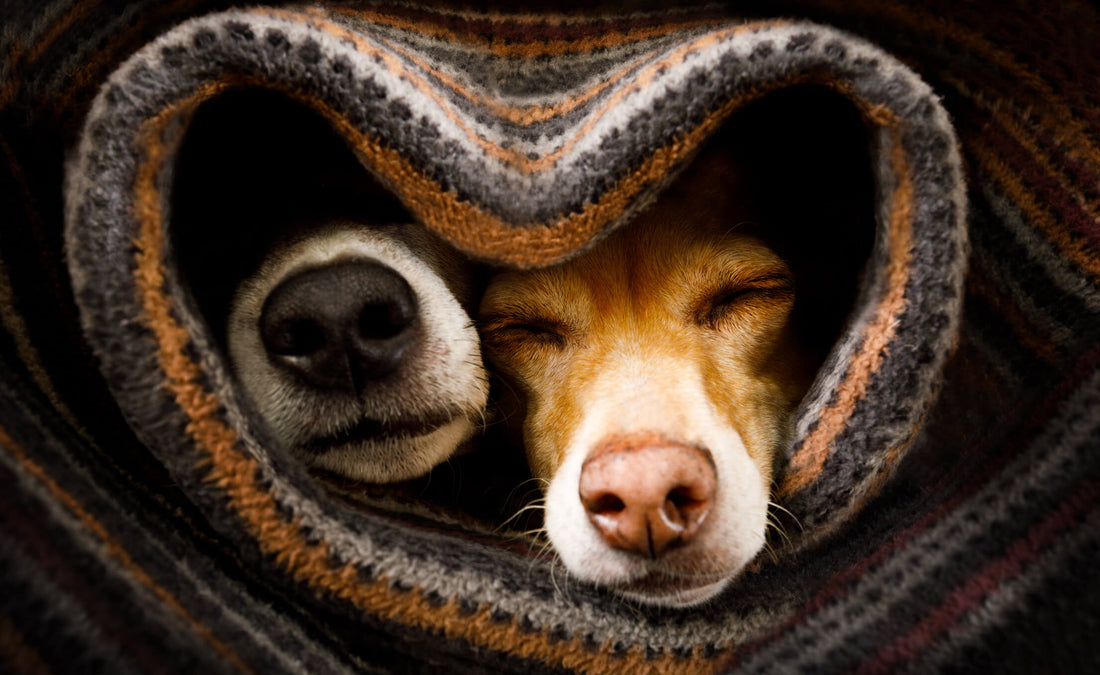
5 Ways Pets Are Affected by Winter’s Shorter Days
Winter’s shorter days and colder temperatures are known for having a range of effects on humans, but did you know they can affect pets, too? Both dogs and cats experience a number of changes, physically and behaviorally, once the temperatures dip and the sun goes down earlier in the day.
If you notice your pet experiencing some changes this winter, don’t be alarmed. Like humans, pets rely on sunlight to direct their natural circadian rhythms. With less sunlight available during the winter months, their bodies—and their routines—need to adjust to the changes.
Here are just a few ways the change of the seasons might be affecting them.
Cats’ mating season ends
Cats’ reproductive cycles are largely influenced by the amount of sunlight available. This is why most cats go into heat in the spring and summer months. When winter rolls around and the number of daylight hours decreases, most cats enter anestrus, the final stage of their reproductive cycle when they cannot get pregnant.
If your cat has not been spayed, you’ll likely notice that her heat cycles will stop in winter, and her behavior might change slightly as a result.
Pets grow thicker fur
With the shorter winter days often comes a drop in temperature, and your pet’s body will react to the change in the best way it knows how to—to protect them from the cold. Both cats and dogs have seasonal hair growth cycles and tend to grow thicker fur and/or undercoats to keep them safe and warm if they’re exposed to colder weather.
At the same time, your pet’s skin might become drier than usual. Cold weather and dry indoor air can dehydrate skin, causing it to become itchy or flaky. Make sure you brush your pet’s fur more often to remove dead hair and distribute oils across their skin.
Dogs get bored or restless
.jpg)
It’s not uncommon for pet parents to stay inside more once the weather changes and the days get shorter. Unfortunately, this might mean that your dog is not getting the exercise and stimulation they’re used to.
Without enough stimulation, dogs might appear depressed or bored and show changes in their behavior. They might even become destructive in order to release some of their pent-up energy! Exercise is still very important for dogs throughout the winter months, so it’s up to you to find time to take your pup outdoors or find alternative means of exercising, like at an indoor track or pool.
Another thing to consider if your dog isn’t exercising as much as they do in the summer is how much you’re feeding them. Maintaining the same calorie count while reducing activity level might result in your pet gaining too much weight. Consult your vet to determine whether your pup needs a winter food adjustment.
Safety becomes a bigger issue
More dark hours in a day can pose numerous risks for pets who are let outside. Whether your cat is allowed out to stroll around the neighborhood, your dog goes to the backyard to do his business or you take your pup for a walk or run after the sun sets, limited visibility can put your furry friend in danger.
If your pet will be out after dark in the winter, equip them with a reflective leash, collar or vest to help warn approaching vehicles of their presence. Generally speaking, it’s best to supervise your pet any time they will be outside in the dark during winter, so they don’t get lost or stuck out in the cold.
Pets might become “SAD”
Most people are aware of Seasonal Affective Disorder (SAD) and its effects on humans, but fewer know that pets might be susceptible to the condition, too. The reasoning behind SAD makes sense. Fewer daylight hours increases melatonin production in the brain, making your pets feel sleepy and lethargic.
It’s not uncommon for pets to sleep more (yes, even cats, who spend the majority of their days lounging already!), be less interested in playing or exhibit more aggressive or irritable behavior.
.jpg)
Pay attention to your pet’s winter changes
Although it’s not uncommon for pets to experience changes related to shorter days during winter, you should remain vigilant of anything that alters your pet’s behavior, energy and health. Extra exposure to sunlight and a little TLC can help your pet work through the winter blues, but make sure you consult your vet if you’re concerned that something more serious might be to blame.


